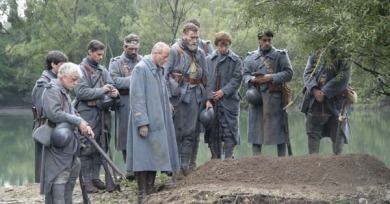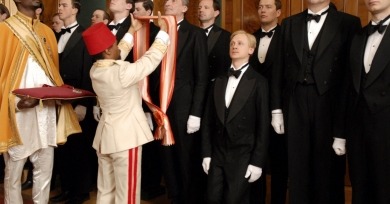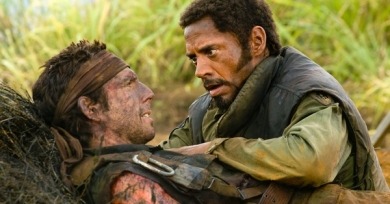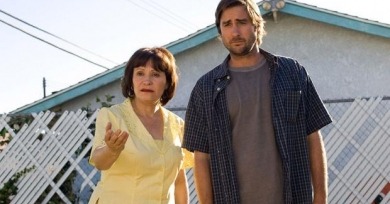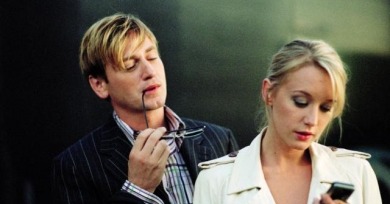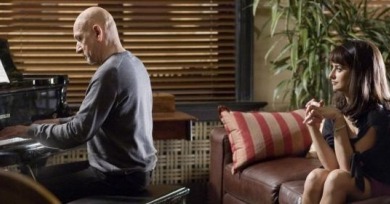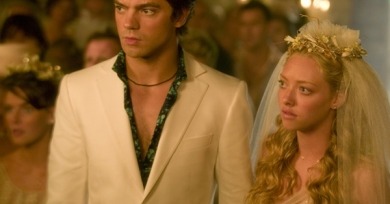Reviews
Why go back to the seventeenth century to tell a tale of love? Why lament the Forez plain when there is yet such natural beauty in the world as cinematographer Diane Baratier finds here?
The value of a film like Chris Smith's The Pool becomes more tangible when you begin to imagine what a lesser filmmaker might have wrought from the same material.
Django, Tarantino, Miike: These names alone are enough to tell anyone whether or not Sukiyaki Western Django isfor them. If you only know the middle guy, don't bother (and for shame!); if you know and like all three, you've probably already seen and blogged about the movie anyway.
Staid pacing and standard shots held a few beats too long to hit the comedic sweet spot show up Green’s inexperience in mainstream generic moviemaking. His direction here exhibits nothing so much as that least attractive of stoner attributes: a sluggish inertia.
With its focus on actors and the movies, Tropic Thunder emerges as Stiller’s grand rumination on two obsessions, Hollywood solipsism and our pop education.
Characters that cling, with ever-whitening knuckles, to the lower rungs of the socioeconomic ladder are nothing new within the realm of American independent cinema, yet Hunt’s triumph here lies in her presentation of the American underclass milieu as a viable cinematic universe without succumbing to pious fetishization or thinly veiled distaste.
Claude Chabrol again goes about dissecting the vanities and hypocrisies of the rich and/or famous with A Girl Cut in Two, the latest of his nearly annual socially satiric potboilers.
It’s honest, beautifully subdued, and, up until a lame departure from Roth’s original ending, tough.
Allen’s seemingly unavoidable need to narratively underline extends to his choice of overlaying Vicky Cristina Barcelona with an omniscient male voice-over, which lends the film the emotional clarity of short fiction but also a nattering, collegiate stuntedness.
The world certainly isn’t wanting for hagiographies of seventies punk-rock trailblazers, but rarely has one felt as inauthentic as Rodger Grossman’s feature debut .
Have we forgotten how to watch movie musicals? Forget about whether or not they make them like they used to—they don’t, and they haven’t for about 50 years.


